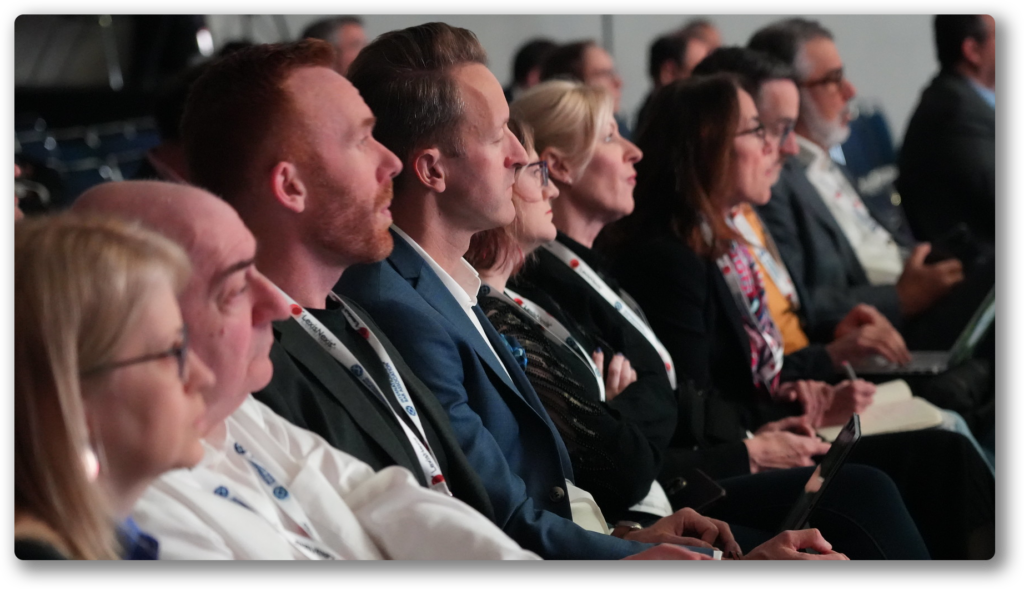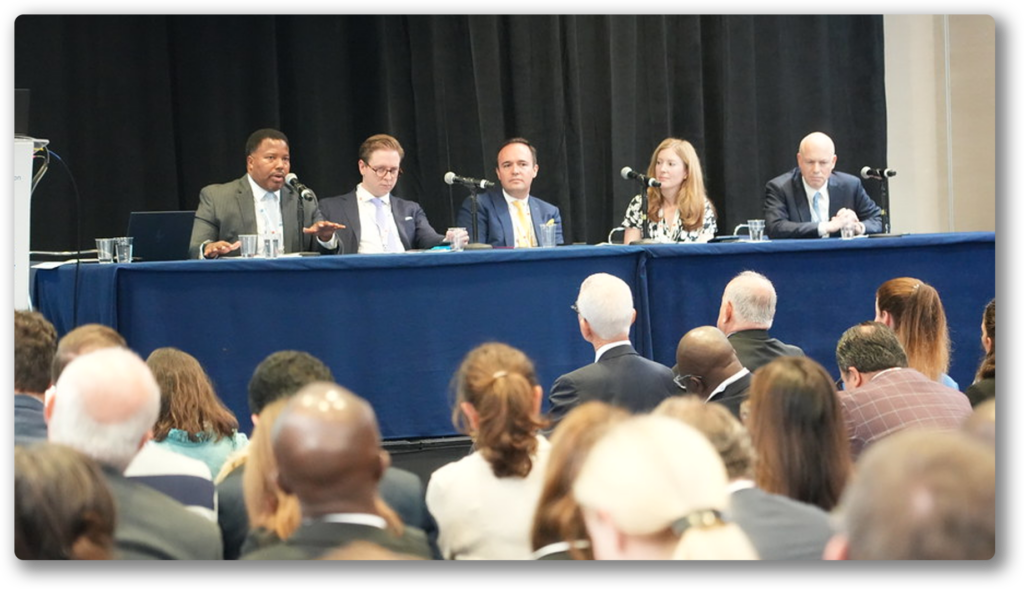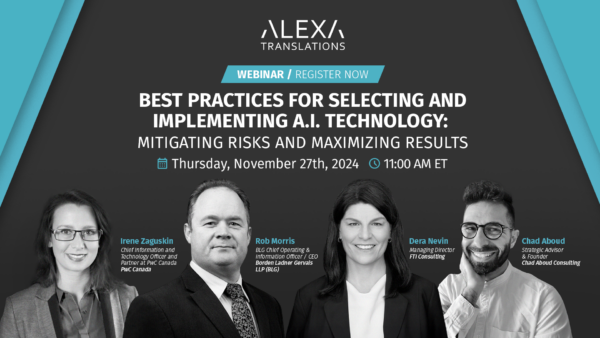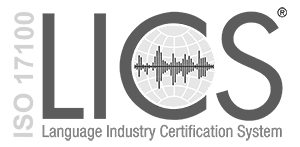In an era of relentless technological advancement, the most powerful tool for law firm growth isn't artificial intelligence, blockchain, or any other cutting-edge innovation.
It's human connection.
This may seem counterintuitive in our digital age, but as I discovered at the 2024 International Bar Association (IBA) conference in Mexico City, the future of legal business development hinges on our ability to forge authentic relationships in an increasingly automated world.
While many firms scramble to adopt the latest tech solutions, they often overlook the fundamental truth that clients seek more than just legal expertise—they crave genuine understanding and trust.
This realization struck me as I engaged with colleagues and industry leaders from across the globe, all grappling with the same challenge: how to remain relevant and competitive in a rapidly evolving legal landscape.
"The most successful firms of tomorrow will be those that master the art of human connection while leveraging technology to enhance, not replace, these vital relationships."
In this article, I'll challenge the prevailing notion that technology alone will drive the future of law firms.
Instead, I'll explore how a strategic blend of mentorship, thoughtful tech adoption, and unwavering authenticity can position legal professionals for success in this dynamic environment.
By the end, you'll understand why the most successful firms of tomorrow will be those that master the art of human connection while leveraging technology to enhance, not replace, these vital relationships.
KEY TAKEAWAYS
- A.I. and machine learning are driving efficiency and innovation in the financial sector.
- Digital-only banking and fintech innovations are reshaping financial services, emphasizing convenience and personalized experiences.
- Regulation technology (RegTech) is enhancing compliance efficiency and data protection.
- The Buy Now, Pay Later (BNPL) sector is expanding, fueled by consumer demand and technological advances.
The Power of Mentorship In Cultivating Rising Stars

Mentorship is often touted as a fundamental pillar in developing the next generation of legal leaders and enhancing business development skills within law firms. However, the success of these initiatives hinges on proper implementation, training, and measurement.
1. Building Effective Mentorship Programs with Clear Goals
Implementing a formal mentorship program with clear success metrics is crucial. This structure provides a framework for both mentors and mentees, ensuring that the relationship is purposeful and goal-oriented. Without these elements, mentorship programs can falter and fail to deliver meaningful results.
To maximize effectiveness, consider the following:
- Provide thorough training for both mentors and mentees on their roles and expectations.
- Establish clear, measurable objectives for the program.
- Implement regular check-ins and evaluations to track progress and make necessary adjustments.
I've found that pairing rising stars with experienced mentors who share similar traits or career paths can be particularly effective. This strategic pairing can even extend beyond the firm, potentially including clients or industry experts, which adds a valuable external perspective.
Regular engagement is key to successful mentorship. I recommend establishing a monthly meeting cadence with suggested agendas. This frequency strikes the right balance between consistent interaction and allowing time for implementation and reflection between sessions
2. Developing an Impactful Mentorship Curriculum
To truly elevate your mentorship program, consider developing a comprehensive training curriculum that combines internal expertise with external insights.
This approach addresses one of the main criticisms of mentorship programs—lack of proper training. Bringing in industry experts to enhance specific skills can provide a fresh perspective and expose your rising stars to diverse thought leadership.
It's also essential to set predetermined milestones for evaluating progress, ideally on a semi-annual basis. This allows for timely adjustments and ensures the program remains aligned with both individual and firm goals.
3. Building a Thriving, Future-Ready Workforce
The impact of effective mentorship cannot be overstated. Research shows that formal mentoring programs can increase employee retention by up to 50%, and mentees are five times more likely to be promoted when paired with mentors two levels above them.
Moreover, firms that invest in employee development see 24% higher profit margins on average.
"Mentorship is not just about knowledge transfer; it's about creating an environment where both individuals and the organization can thrive."
By fostering a culture of continuous learning and growth through well-structured mentorship, law firms can significantly enhance their talent pipeline and future-proof their business development strategies.
DID YOU KNOW?
• Formal mentoring programs can increase employee retention by up to 50%.
• Mentees are five times more likely to be promoted when paired with mentors two levels above them.
• Firms that invest in employee development see 24% higher profit margins on average.
Source: LifeAfterLaw, LegalCompass, RunSensible
Remember, effective mentorship goes beyond simple knowledge transfer—it requires creating an environment where both individuals and the organization can flourish, supported by robust training, clear goals, and consistent measurement of outcomes.
Embracing Technology Trends in Legal Business Development
In today's rapidly evolving legal landscape, strategic technology adoption is no longer optional—it's imperative, especially in business development. With barriers to entry lower than ever, law firms are faced with an abundance of tech solutions.

Based on my experience and extensive research in this area, I've developed a blueprint for assessing and implementing crucial technology trends that I believe can significantly benefit law firms.
1. Aligning Tech Solutions with Your Firm’s Needs and Goals
The first step is conducting a thorough needs assessment. Create a framework to evaluate your firm's specific needs and priorities, focusing on addressing the most significant pain points first with targeted technology solutions.
To effectively triage the multitude of options available, it's crucial to develop a comprehensive evaluation framework. This framework should include criteria such as:
- Alignment with firm goals
- Potential ROI
- Integration capabilities
- User-friendliness
- Scalability
- Vendor reputation and support
- Data security and compliance features
- Customizability
- Implementation timeline and resources required
- Total cost of ownership
By systematically applying this framework to each potential technology solution, you can efficiently narrow down options and identify the tools that best fit your firm's unique needs and objectives. This structured approach is especially valuable in today's market, where the abundance of choices can be overwhelming.
"Technology should be a tool that augments human expertise, not replaces it."
What’s more, the ability to adapt tools to your firm's unique workflows is crucial for seamless integration. Adequate vendor support is vital, as studies show that technology implementations without proper support have a 70% failure rate. And in our industry, where confidentiality is paramount, robust data protection measures are non-negotiable.
I'm a strong advocate for structured experimentation when it comes to new technologies. I recommend allocating approximately 10% of resources to testing new tools and approaches. This aligns with the '70-20-10' model of innovation management used by leading companies across industries.
DID YOU KNOW?
• Studies show that technology implementations without adequate vendor support have a 70% failure rate.
• Research suggests it takes an average of eight months for new technology to be fully adopted in professional services firms.
Sources: Thomson Reuters, Briefpoint
When it comes to adoption, plan for a gradual curve. Research suggests it takes an average of eight months for new technology to be fully adopted in professional services firms. Patience and persistent support are key during this transition period.
2. Technology as a Catalyst for Business Development Success
Some key areas where I've seen technology making significant impacts include A.I.-powered proposal writing, CRM optimization, cross-selling identification tools, and utilization analysis.
For instance, A.I.-powered proposal writing has been shown to increase efficiency by up to 40% in recent case studies. CRM optimization can improve client retention rates by an average of 27%, while cross-selling identification tools have helped firms increase revenue by up to 20% through better opportunity recognition.
However, I always emphasize that the goal is not just to adopt technology for its own sake, but to integrate it strategically to enhance your firm's business development capabilities and overall efficiency.
Technology should be a tool that augments human expertise, not replaces it.
Remember: the most successful firms will be those that harness technology to enhance their services while steadfastly maintaining the authentic, human-centric approach that clients truly value. Technology should empower lawyers to be more present, attentive, and responsive to their clients' needs, not create a barrier between them.
Legal Business Development: Maintaining Authenticity in the Digital Age
In an era where technology tools and social media can sometimes create artificial and superficial interactions, maintaining authenticity in business development efforts is more crucial than ever.

Trust is the cornerstone of client relationships in the legal industry, and authenticity is key to building that trust. Here are some ways of doing just that.
1. Face-to-Face Interactions
One strategy I strongly advocate for is prioritizing face-to-face interactions. While digital tools are valuable, nothing replaces in-person meetings for building authentic connections.
A study by Harvard Business Review found that face-to-face requests are 34 times more successful than emails. Whenever possible, I encourage arranging personal meetings with clients and prospects to foster deeper relationships.
2. Demonstrate Expertise
Demonstrating expertise through thought leadership is another powerful way to maintain authenticity. Regularly sharing valuable insights and knowledge through various channels—be it articles, webinars, or podcasts—showcases your firm's expertise in a genuine way.
DID YOU KNOW?
• A study by Harvard Business Review found that face-to-face requests are 34 times more successful than emails.
Source: Harvard Business Review
3. Transparency is Key
Transparency is also crucial in building trust. Be open about your firm's processes, pricing, and potential challenges in cases. Research shows that consumers are increasingly demanding transparency from law firms. This openness not only builds trust but also demonstrates your commitment to client success.
"Trust is the cornerstone of client relationships in the legal industry, and authenticity is key to building that trust."
4. Make it Personal
Personalizing your approach to each client is a crucial aspect of authenticity in legal business development.
The modern client expects more than just generic service—they want to feel understood and valued as individuals. This concept can be summed up in the phrase, "Show me you know me."
"Technology should empower lawyers to be more present, attentive, and responsive to their clients' needs, not create a barrier between them."
5. Leverage Technology With Care
While leveraging technology is important, it's equally crucial to do so ethically. Use A.I. and other tools to enhance your services, but always maintain human oversight. Be transparent about your use of technology and ensure it complements—rather than replaces—the human touch in your client relationships.
6. Showcase Client Successes
Encouraging and showcasing client testimonials can be a powerful trust-builder. The Edelman Trust Barometer found that 88% of people trust recommendations from people they know. Encourage satisfied clients to share their experiences and feature these testimonials prominently in your marketing efforts.
7. Community Involvement Goes a Long Way
Lastly, engage in genuine community involvement. Demonstrate your firm's values through meaningful community engagement. Research shows that 87% of consumers will support a company that advocates for issues they care about.
DID YOU KNOW?
• 88% of people trust recommendations from people they know.
Source: Forbes
By focusing on these strategies, law firms can maintain authenticity in their business development efforts, building trust and fostering long-term client relationships in an increasingly digital world.
Remember, the most valuable client relationships are built on trust, empathy, and mutual understanding—qualities that cannot be fully replicated by technology. While digital tools can enhance efficiency, they should never come at the cost of the human element that sets your firm apart.
The Bottom Line
In conclusion, the future of legal business development lies at the intersection of strategic mentorship, thoughtful technology adoption, and unwavering authenticity. By embracing these principles, law firms can position themselves not just to survive, but to thrive in the evolving legal landscape.
The organizations who think through this lens and make it part of their workflow early on will be the ones who lead the way in the next era of business development.
As we navigate this future together, I'm excited to see how our industry will continue to innovate and adapt. The leaders of tomorrow will be those who not only embrace change but actively shape it, always keeping the needs of their clients at the forefront of everything they do.
About the Author
.
Gary Kalaci is a dynamic lawyer, award-winning entrepreneur, and CEO of Alexa Translations, a recognized leader in language solutions and cutting-edge translation technology.
Beyond driving strategic growth and innovation at Alexa Translations, Gary’s influence extends to leadership roles and board positions at prominent professional associations and not-for-profit organizations, where he actively shapes the future of the business and legal landscapes.
With a unique blend of business acumen and legal expertise, Gary has successfully navigated complex challenges for clients in finance, corporate, legal, and government sectors. His ability to connect vision with execution has positioned him as a trusted advisor and thought leader in the industry.
Don’t miss out on the knowledge that can help you stay competitive in 2025
Subscribe to our newsletter for exclusive insights into the latest financial trends, expert analysis, and more. Be the first to know—sign up today!


















